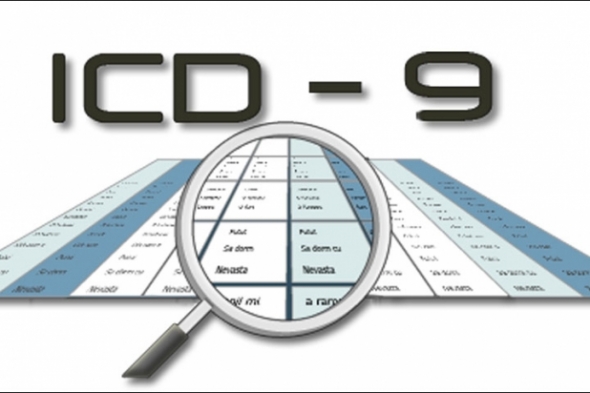The medical portion of Workers’ Compensation claims now meets or exceeds 60% of claim costs. That fact alone should easily convince payers to focus on the rich medical information in their data. Very powerful information residing in claims data is virtually untouched—diagnostic codes in the form of ICD-9’s. The problem is few in the industry really understand ICD-9’s or in what ways they could inform powerful medical management.
ICD Defined
ICD-9 codes are not unique to Workers’ Compensation. ICD-9’s are the World Health Organization's International Classification of Diseases, Ninth Revision, Clinical Modification (ICD-9-CM). They are a standardized method of describing injuries, illnesses, and related issues worldwide.
ICD is the classification that codes and classifies mortality data worldwide. The ICD-CM is used to code and classify morbidity data from inpatient and outpatient records and doctor’s offices.
The purpose of the ICD and of WHO (World Health Organization) sponsorship is to promote international comparability in the collection, classification, processing, and presentation of mortality statistics. New revisions of the ICD are implemented periodically so that the classification also reflects advances in medical science.
ICD’s in Standard Billing Forms
Those who bill for medical services in the U.S. are required to use one of two CMS (Center for Medicare and Medicaid) standard forms, the HCFA-1500 (Health Insurance Claim Form) for outpatient and UB-04 Unified Billing) for hospitals and other facilities. Both standardized forms require the medical provider to list ICD-9’s appropriate to the medical procedures for which they are billing. The verdant data derived from these forms should be analyzed and incorporated into managed care processes.
Unwieldy and Ignored
Bill review organizations and payers capture data from the standardized billing forms in their systems. Nevertheless, while the ICD information is documented in systems, it’s use usually stops there. ICD-9’s are difficult to interpret.
ICD-9’s on bills are displayed in the form of codes, not descriptions of injuries and illnesses and they number in the thousands. Individuals cannot remember the codes, nor do they have the time to look up codes for interpretation. Instead, they simply ignore them.
Secret Power of ICD
Incremental essential knowledge resides in ICD-9 codes that can be translated to powerful medical management. When they are monitored electronically and concurrently, they reveal and inform.
ICD-9’s Reveal Migrating Claims
For instance, migrating claims accrue ICD’s. Migrating claims are those that are not going well, are becoming more complex and costly, often an insidious process that is missed by claims adjusters and medical case managers until considerable damage is done. What happens in migrating claims is the injured worker is not recovering for some reason and is referred to multiple specialists. Each specialist adds new ICD-9’s to the claim.
As a claims migrates, the number of ICD-9’s associated with it mounts.
Computer Monitoring
Using a computerized system especially designed to monitor ICD-9’s is a powerful knowledge solution. Alerts are sent to appropriate persons when the number of ICD-9’s in a claim increases beyond a designated point. Migrating claims cannot be missed and intervention is early, therefore far more effective.
ICD-9’s are Predictors
Another way to tap the secret power of ICD-9’s is to score them individually for medical severity, the seriousness of the injury or illness. Each claim then contains a total ICD-9 score in the system for medical severity. As ICD-9’s are added during the course of the claim, the claim ICD score increases. As a claim migrates and accumulates ICD-9’s, an appropriate person is automatically notified by the system. Migrating claims cannot go unnoticed.
Claims with high ICD-9 scores are predictors of risk and cost. Claim ICD-9 scores can be monitored from the outset and throughout the course of the claim.
ICD-9’s Scores Level the Playing Field
The claim ICD-9 score reveals the seriousness and complexity of a claim. Medical doctors managing difficult claims can be differentiated from those handling less arduous claims, thereby creating fairness in measuring provider performance.
Many indicators are used for claim monitoring and provider performance including medical cost, frequency and duration of treatment, indemnity costs, return to work and multiple other factors. The claim ICD medical severity score automatically predicts trouble and alerts the appropriate medical managers.
Moving on—ICD-10
The ICD-9 contains thousands of codes. Moreover, the ICD-10 revision will more than double the number of codes, making its information value exponential. ICD-10 is slated to be activated in October of 2014.





